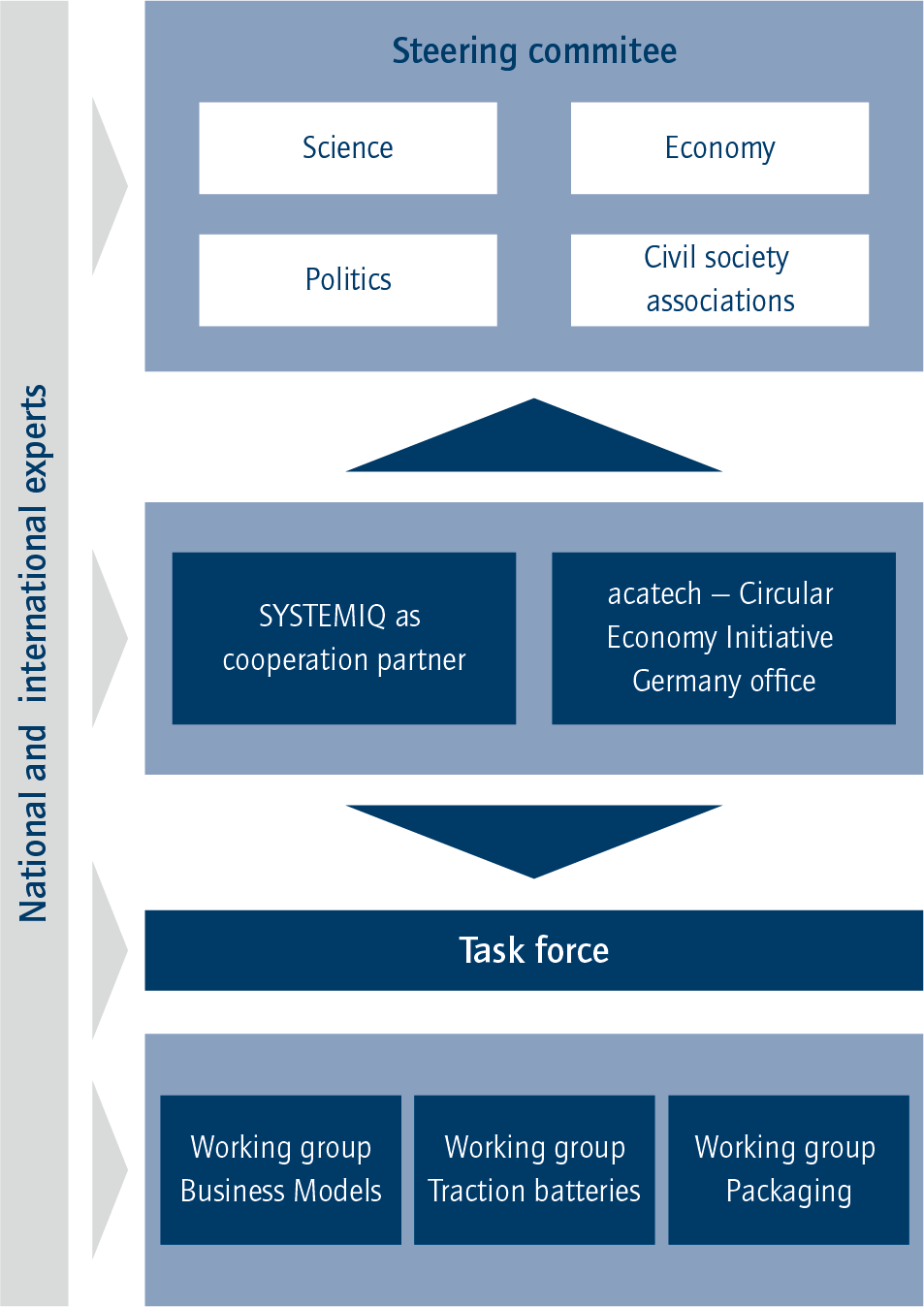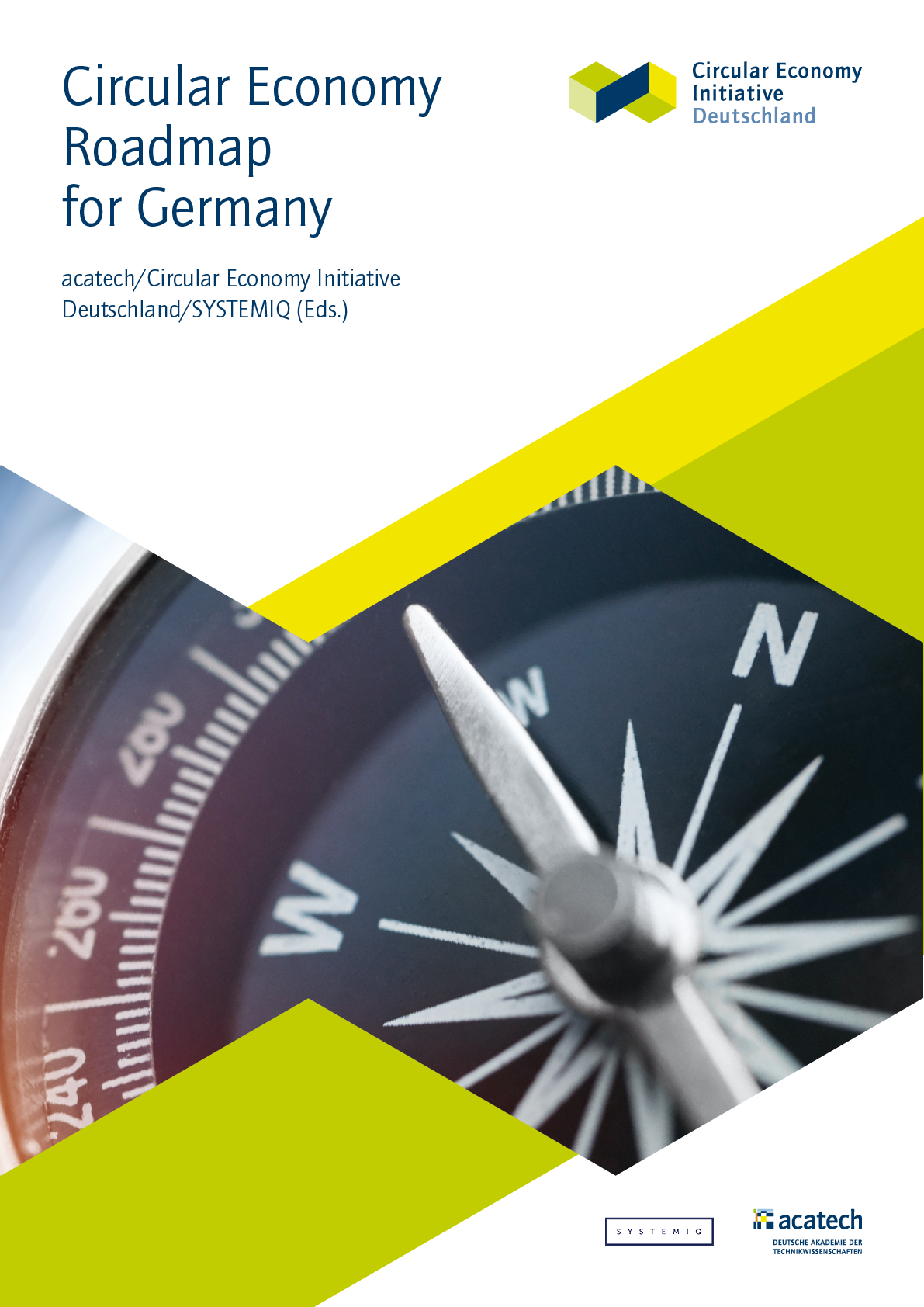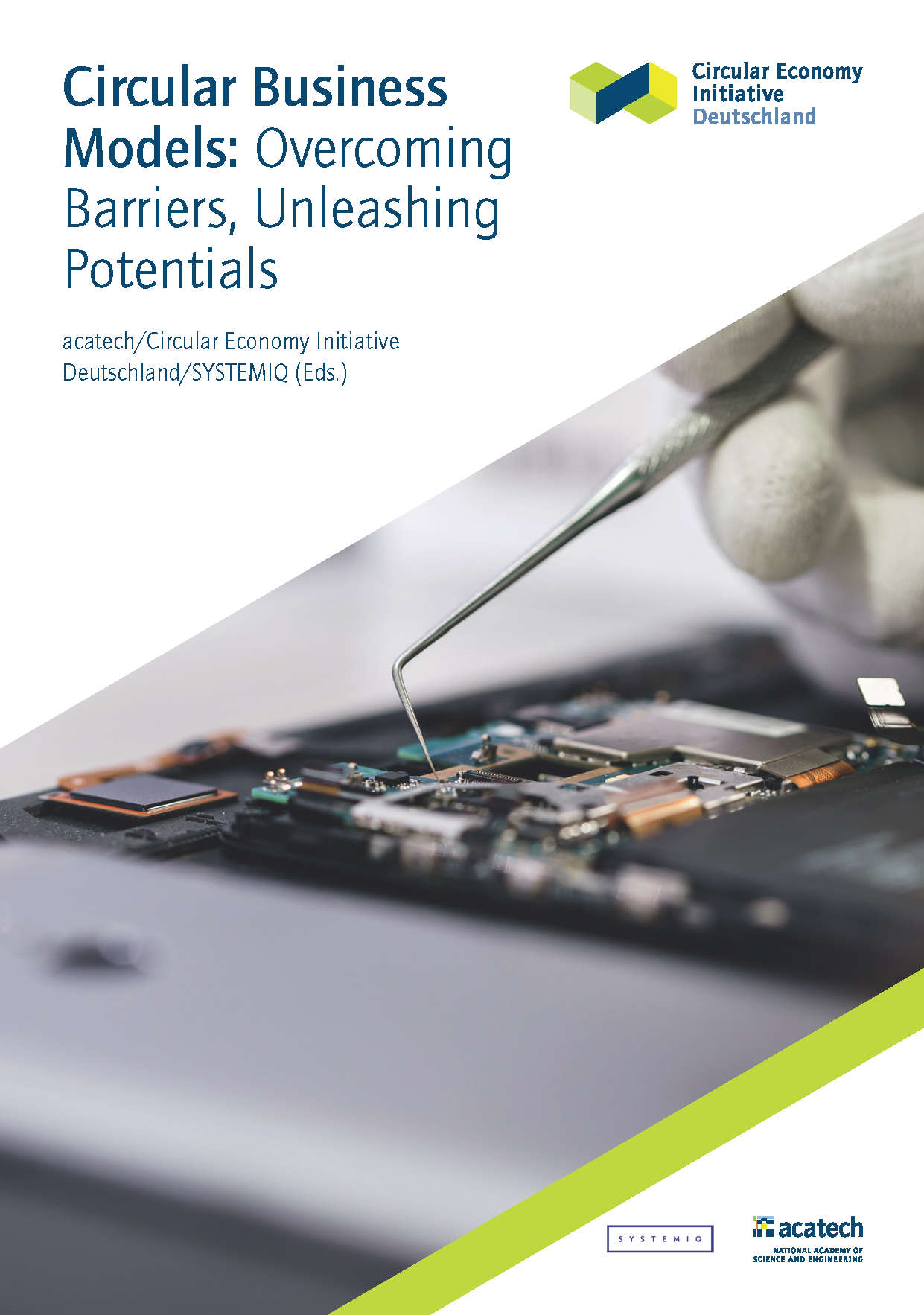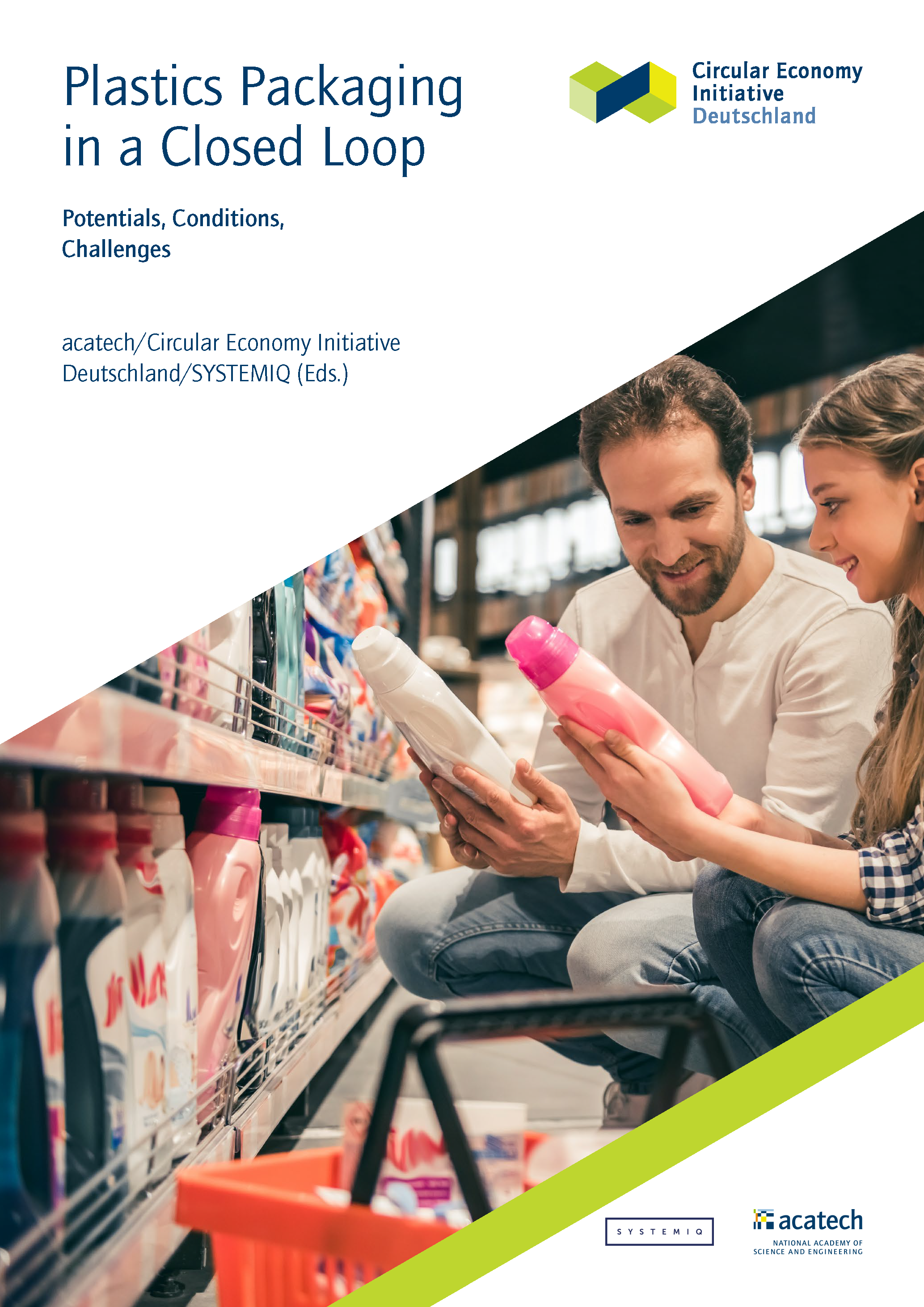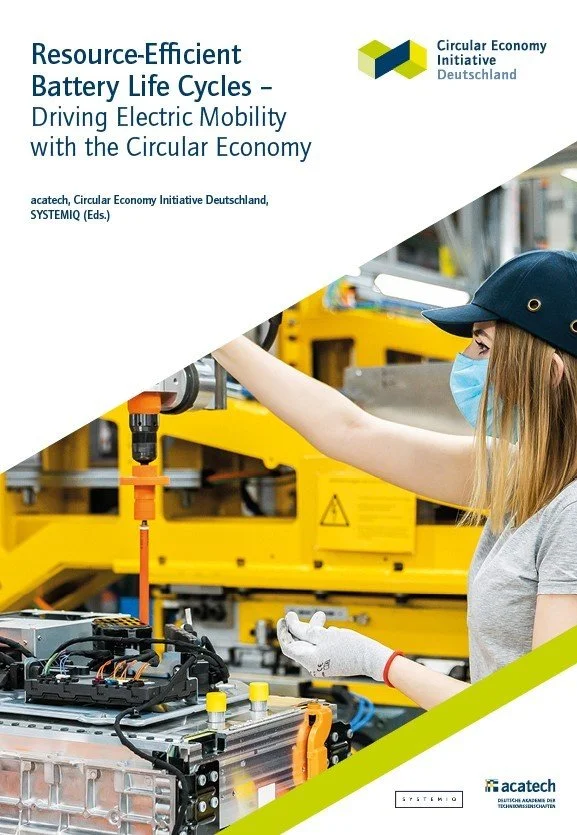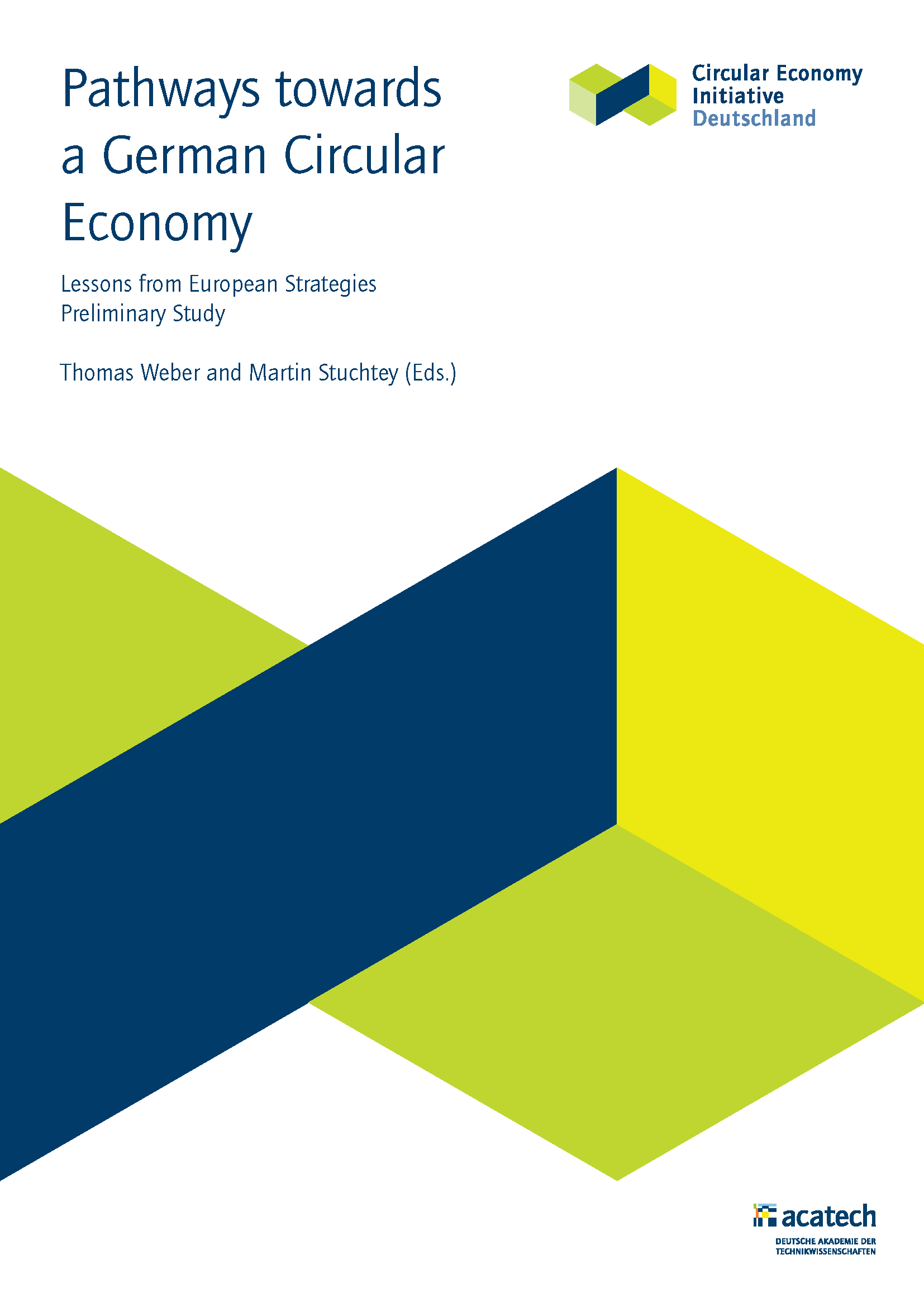Circular Economy Initiative Deutschland (CEID)
© Mohit Kumar/Unsplash
Background and aims
The Circular Economy Initiative Deutschland (CEID) has set itself the challenge of creating a Roadmap for a sustainable Circular Economy in Germany. Within the initiative, actors from science, industry and civil society work together to accomplish this goal by identifying new ways of building a Circular Economy.
Most current patterns of production and consumption follow a linear “extract, produce, consume, dispose” model. This form of economy is associated with high costs for humans and the environment – climate change and environmental pollution are among the consequences. The concept of the Circular Economy aims at a fundamentally change by optimising material and energy cycles and – as far as possible and ecologically sensible – closing them. Which change processes along the entire value chain are necessary are discussed by economic, scientific and societal stakeholders within the Circular Economy.
Structure
The CEID brings together stakeholders from industry, academia and civil society organisations. It aims to develop a joint target vision for Germany, to investigate concrete applications, to support their implementation and to identify beneficial framework conditions. This takes place in various committees. The working groups form the core of the initiative, where the interdisciplinary and cross-stakeholder dialogue between the experts involved takes place. The Steering Committee forms the management and strategy level of the initiative. The Task Force consists of representatives of the companies, scientific institutions and civil society organisations represented in the Steering Committee, as well as the CEID office and the cooperation partner SYSTEMIQ.
The CEID is funded by the Federal Ministry of Education and Research. The initiative is executed under the guidance of acatech – National Academy of Science and Engineering in cooperation with SYSTEMIQ. The acatech Vice-Presidents Thomas Weber hold the chair of the initiative.
CEID-Structure
Steering Committee
The high-level representatives from politics, industry, science and civil society associations represented in the steering committee develop the strategic direction of the initiative, monitor progress in the development of the content and contribute to bringing the results of the initiative to the public.
Members of the Steering Committee:
-
Prof. Dr.-Ing. Thomas Weber, acatech Vice-President
-
Oda Keppler, Federal Ministry of Education and Research
Dr. Regina Dube, Federal Ministry for the Environment, Nature Conservation and Nuclear Safety
Dr. Winfried Horstmann, Federal Ministry for Economic Affairs and Energy
-
Dr. Florian Weig, BMW AG
Markus Steilemann, Covestro AG
Markus Schäfer, Daimler AG
Prof. Dr. Thomas Müller-Kirschbaum, Henkel AG & Co. KGaA
Patrick Wiedemann, Reverse Logistics Group
Dr. Carsten Polenz, SAP SE
Dr. Norbert Lütke-Entrup, Siemens AG
Prof. Dr. Egbert Lox, Umicore AG & Co KGaA
-
Prof. Dr.-Ing. Peter Elsner, Fraunhofer Institute for Chemical Technology (ICT)
Prof. Dr.-Ing. Eckhard Weidner, Fraunhofer Institute for Environmental, Safety and Energy Technology UMSICHT
Univ.-Prof. Dr. Erik G. Hansen, Johannes Kepler University Linz
Prof. Dr. Joachim von Braun, Rhenish Friedrich Wilhelm University of Bonn
Prof. Dr.-Ing. Günther Seliger, Technical University Berlin
Prof. Dr.-Ing. Arno Kwade, Technical University Braunschweig
Prof. Dr.-Ing. Manfred Fischedick, Wuppertal Institute for Climate, Environment and Energy
-
Philipp Niessen, European Climate Foundation
Dr.-Ing. Christoph Wolff, World Economic Forum
Dr. Martin Bethke, WWF Germany
-
Prof. Dr. Martin R. Stuchtey, SYSTEMIQ Ltd
Working Groups
In interdisciplinary and cross-sectoral Working Groups (WG), some 130 experts from science, industry and civil society discussed how circular economic systems can be enabled and implemented. To this end, they examined possible fields of application and discussed which framework conditions could lead to successful implementation. The findings provided the basis for the transformation pathway set out in the Circular Economy Roadmap for Germany.
-
In the working group, the members focus on existing and possible circular business models and analyse the necessary framework conditions for their implementation. In a first step, the work of the experts addresses the development of a business model typology based on which the necessary technological preconditions are identified. A particular focus is on the role of digital technologies. Based on this, the economic viability of the respective business models will be examined and the necessary regulatory framework conditions for their successful implementation will be investigated.
Working Group Leads:
Patrick Wiedemann / Reverse Logistics GmbH
Prof. Dr. Erik Hansen / Johannes Kepler University Linz
-
The working group discusses challenges and opportunities in the resource-efficient, circular management of traction batteries for electromobility in individual transport. The starting point is the formulation of a target vision for the year 2030 along the qualitative dimensions of regulation, material flows, technical developments, value creation networks and implementation within companies. In order to achieve this target, recommendations for action are proposed to politics, industry and science and summarised in a consecutive order in a roadmap. These results are supplemented by the development of excursuses and pilot profiles that analyse up topics of central importance for the transformation process in more depth and outline concrete implementation steps.
Working Group Leads:Dr.-Ing. Christian Hagelüken / Umicore AG & Co. KG
Prof. Dr. Arno Kwade / Technical University Braunschweig
-
In the working group, the members address concrete challenges of Circular Economy approaches in the packaging industry along the entire value chain. The results of the working group include, on the one hand, a target vision for a circular packaging industry that discusses various circularity levers and derives the need for action for all relevant stakeholders in order to achieve the goal of a climate-neutral Circular Economy by 2050. On the other hand, the status quo and barriers to the circularity of (plastic) packaging are examined in depth using two case studies, HDPE bottles for liquid detergents and PET trays for food. Building on this, the experts in the working group have identified six starting points for transforming the packaging industry into a system based on circular value creation.
Working Group Leads:
Prof. Dr. Thomas Müller-Kirschbaum / Henkel AG & Co. KGaA
Prof. Dr. Peter Elsner / Karlsruhe Institute of Technology (KIT), Fraunhofer Institute for Chemical Technology (ICT)
Members of the Working Groups
Partners
Publications
Project duration:
03/2019 — 05/2021
Chair acatech:
Prof. Dr.-Ing. Thomas Weber
acatech - National Academy of Science and Engineering
Project Lead:
Dr. Susanne Kadner acatech Office Tel.: +49 89 520309-30 kadner@acatech.de



